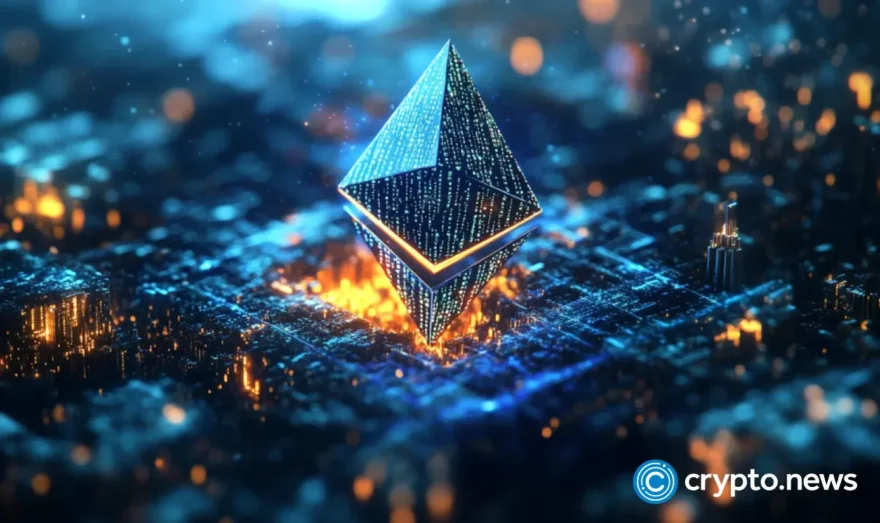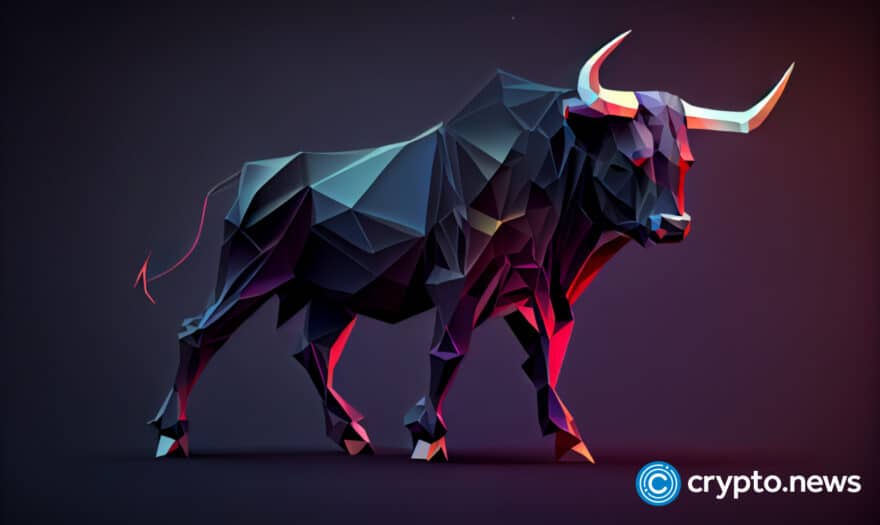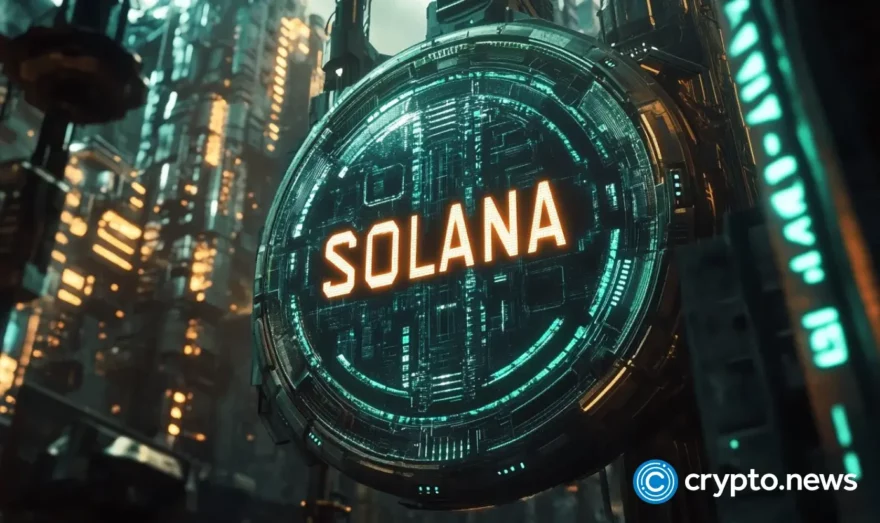Crypto grants to look out for in Q4 2023

With VC funding for crypto projects declining, here’s your guide to promising grant opportunities for emerging projects in the web3 space.
Earlier in the year, Fortune Business Insight predicted the worldwide value of blockchain technology would surge to at least $17.57 billion by the end of 2023 and as much as $469 billion by 2030.
There are currently over 1,000 blockchain networks in operation, and with so much money at stake, it’s no wonder each unique ecosystem is striving diligently to further its growth by creating new use cases catering to people’s everyday needs.
Many of them have adopted community-driven development strategies, including grant programs designed to reward contributors and innovators who have promising new ideas and applications that may help grow the network.
What are crypto grants?
Crypto grants are invaluable financial incentives given to individuals, teams, or organizations to encourage the development and advancement of projects within the blockchain and digital currency ecosystem.
They serve as a form of funding for those who want to build projects in areas such as crypto protocols, blockchains, non-fungible tokens (NFTs), the metaverse, and more in the web3 space.
With the industry trying to shake off the effects of a prolonged bear market that affected it for most of 2022, leading to a marked decline in venture capital funding for new projects, crypto grants have become a godsend for fledgling innovators.
What to know about crypto grants
Hundreds of crypto grants support developers with anything from small sums to large amounts in the millions of dollars. Some grants specifically target projects and developers with proven track records, while others are open to any crypto enthusiast looking to get into the space.
Grants in the crypto and web3 ecosystems can be categorized into several types based on their purpose:
- Development grants: Given to projects that contribute to the development of blockchain platforms.
- Research grants: Awarded to individuals and organizations conducting research that can potentially enhance the blockchain or crypto space.
- Infrastructure grants: Targeted at projects aiming to improve or build necessary tools and infrastructure for blockchain platforms.
- Community building grants: Intended to foster community engagement and growth.
- Education and application grants: Provided to projects that focus on educating the public about blockchain and crypto or developing apps that facilitate the use of these technologies.
- Ecosystem grants: Intended to nurture the overall ecosystem of a specific platform.
However, it’s important to note that these categories can overlap, and one grant can serve multiple purposes.
Crypto grants can also be categorized by their source of funds. Specific blockchain networks and their treasuries fund some, while others use crowdfunding to source funds distributed to developers.
Here, we’ll look at several grants falling within these two funding practices and how they stimulate new project developments and allow members of the web3 community to contribute to the advancement of the technology.
Treasury-funded crypto grants
These crypto grant programs get their funds from specific blockchain networks or project treasuries.
They are usually established by the creators of a specific cryptocurrency or blockchain project, and they use a portion of the project’s treasury or reserves to fund development and innovation within their ecosystem.
Below are a few examples:
BNB Chain Developer Programs
The BNB Chain Developer Program is an initiative by BNB Chain to support developers and builders within the blockchain ecosystem. The program offers various forms of grants, incentives, and programs to drive innovation and contribute to the long-term utility of the BNB Chain.
One of the grants available is the Builder Grant, which provides funding to open-source developers, enabling them to make contributions to the BNB Chain’s long-term utility. This grant empowers developers working on open-source projects within the BNB Chain ecosystem.
Another grant is the Gas Grant, where selected projects can receive up to $15,000 in monthly rewards to accelerate their dapp’s growth. This grant program supports early-stage projects and helps them expand within the BNB Chain ecosystem.
The BNB Chain grants program also includes the Most Valuable Builder (MVB) Program, which is a regional grant-based program designed for web3 startups globally. Winners of these Innovation Incubators receive support and funding for their projects.
How to apply
To apply for the BNB Chain grants program, developers can fill an application on the BNB Chain website within the first seven days of every month. The program is dedicated to investing in innovative projects and teams building on or contributing to the BNB Chain.
Ethereum Foundation ESP Grants
As the Ethereum Foundation’s (EF) public-facing grant distributor, the Ecosystem Support Program (ESP) offers funding and other types of support to projects that contribute to the growth and improvement of Ethereum (ETH).
The grant program is designed for projects that enhance Ethereum’s foundational elements, including building developer tools, conducting research, fostering community growth, strengthening infrastructure, and promoting open standards.
The funds act as financial catalysts for developer teams working on innovations to make Ethereum more efficient, secure, and user-friendly. They are awarded every quarter to grantees from various backgrounds, disciplines, and levels of experience stretching across the globe.
Per the ESP, Ethereum network grants are given following a thorough application and review process.
Those interested must keep an eye on the Ethereum Foundation’s blog and social media channels to stay updated about grant opportunities and submit their proposals when ESP announces open rounds.
How to apply
- Identify your project: Determine if your project aligns with the EF’s mission of supporting the Ethereum ecosystem. Projects that typically receive funding provide solutions for scalability, community building, and other critical areas of Ethereum’s development.
- Choose the appropriate grant program: ESP offers different types of grants. For instance, they have a small grant program capped at $30,000 with a streamlined application process, and a decision is usually delivered two weeks after submission. They also offer project grants for more extensive projects.
- Prepare your application: Once you’ve identified your project and the suitable grant program, prepare your application. While the specific requirements may vary depending on the grant type, you will need to provide details about your project, its goals, and how it contributes to the Ethereum ecosystem.
- Submit your application: Applications should be submitted through the appropriate channels. Be sure to check the specific grant program’s page for instructions on how to submit your application.
- Await evaluation: After submission, your application will be evaluated. You can expect a decision for the small grants program around two weeks after submission.
Avalanche Multiverse and Blizzard
The Avalanche Multiverse is an ongoing initiative with a dedicated $290 million budget, currently equivalent to about 4 million of the platform’s native AVAX tokens. The initiative’s primary aim is to expedite the adoption and growth of Avalanche’s “subnet” feature, which is designed to allow an ecosystem of app-specific blockchains with the ability to scale effectively.
The program’s initial focus is to support the development of new ecosystems in several fields, including blockchain-based gaming, decentralized finance (defi) protocols, NFTs, and even institutional use cases.
Parallel to the Avalanche Multiverse, the Avalanche Foundation also launched the Blizzard Fund. With a hefty $200 million-plus budget, Blizzard is about accelerating the development, growth, and innovation within the Avalanche public blockchain ecosystem and beyond.
It is a collaborative effort with contributions from the Avalanche Foundation, Ava Labs, Polychain Capital, Dragonfly Capital, and CMS Holdings, among others.
The two incentives are opportunities for those working in the development of new ecosystems, especially those focused on web3 decentralized application (dapp) scaling solutions.
How to apply
Interested parties can get involved by applying through their dedicated platforms.
Chainlink Grants Program
The Chainlink grant program is designed to stimulate the development of essential tools for developers, foster the provision of high-quality data, and support the introduction of essential services within the Chainlink network.
The developer grants aim to promote the creation of smart contract tools and enable education opportunities for both experienced and budding developers. Ultimately, the program strives to bolster the rapid development of interconnected smart contracts and oracle node networks.
Chainlink also has a bug bounty program that backs developers and security engineers who scrutinize its core code, strengthening it against potential future threats.
Grants range from $5,000 to $100,000 and are open to startups and founders in the blockchain, cryptocurrency, NFT, and extended web3 sectors. They are not just limited to technical projects but also include social impact initiatives.
For example, in 2022, an Estonian startup named Coorest received a social impact grant from Chainlink. In another case, Open Earth, a research and deployment non-profit working to increase global resilience, received a Chainlink grant for developing an integrated assessment model (IAM) oracle.
How to apply
Those interested can fill out an application form on the grant program’s dedicated page.
dYdX grants
dYdX operates as an autonomous derivatives exchange built on Ethereum, facilitating the trading of perpetual contracts, margin tokens, and spot markets.
It offers a grant program designed to support the work of developers, researchers, and content creators looking to contribute to the dYdX ecosystem.
With amounts ranging from a minimum of $1,000 to a maximum of $50,000 and application deadlines tailored to specific projects, the dYdX grants provide an interesting opportunity for those keen on researching, innovating, or educating in the defi space.
According to information on the dYdX website, the program has had 27 funding rounds since inception, giving 122 grants with an overall value of more than $4 million.
Potential grantees must complete an application form, which the grants lead and committee members will review. dYdX is working on enabling payments to U.S.-based grantees, even as it navigates the country’s regulatory complexities.
If approved, the grant lead will collaborate with a successful grantee to establish potential milestones. When one is achieved, the developer will receive payment. However, if milestones can’t be determined, the project will receive a portion of the grant upfront to cover costs, typically around 25%, with the balance awarded upon successful completion.
The grant project considers anything that will positively impact the dYdX product and community, from external trading tools and governance dashboards to translating documentation or third-party integrations. The complexity of the project will be reflected in the funding amount.
How to apply
The dYdX grants program has a dedicated page for application submissions. It usually takes up to a week from the initial application to hear from the dYdX team. A faster response may depend on the review requirements and complexity of the application.
To increase their chances of getting funded, developers must show a strong record of open-source contributions, previous involvement in the dYdX community, and past project examples.
For technical contributions, a prior history of technological projects is essential. Lastly, the dYdX grants project approves new funding rounds weekly, so there are ample opportunities for participation in the grants program.
Solana Foundation Grants
The Solana Foundation offers grants for open-source ventures from individuals, autonomous groups, government entities, businesses, and educational institutions.
The grants are particularly aimed at projects exploring areas like censorship resistance, developer tooling, education, financial inclusion, and academic research among others.
Solana has outlined elements it wishes to see in every grantee:
- Open source: Projects should be developed with the intent to share findings openly.
- Public good: There should be a direct link between a proposal and the value it generates for the wider Solana or global community.
- Execution capability: Grantees should demonstrate their team possesses the skills and potential to actualize their proposal.
- Unique contribution: Projects should strive to venture into relatively new areas.
- Clear use of funds: Grantees should be careful in determining the amount they are requesting and provide a clear plan for how the funds will be used to achieve their objectives.
Aside from the Solana Foundation, there are several other funding sources available within the Solana ecosystem, including Metaplex, Solana Ventures, hackathons, and ecosystem funds, each with their own objectives and requirements.
How to apply
An application form can be found on the Solana platform. The Foundation advises grant applicants to ensure their application highlights how their project will enhance the public good for the Solana network, such as by promoting decentralization, open-sourcing code, or contributing to the network’s security.
With Solana grants being milestone-dependent, it is also recommended that applicants include suggested milestones in their proposal.
The grants team regularly evaluates applications, and if needed, ask for more information or schedule a meeting with potential grantees.
Given the large volume of applications received, the team usually strives to process them as rapidly as possible, with the aim of contacting applicants within a two-week timeframe.
Crowdfunded crypto grants
These grant programs get their funds from crowdfunding activities. They rely on the collective effort of individuals who pool their resources to support initiatives. This method is often used to democratize funding and to support projects that might not have access to treasury-funded grants or other traditional forms of financing. Additionally, they allow members of the public to participate in the development of web3 by supporting their favorite projects.
Some crowdfunded crypto grants actually use a “mixed” funding system, where funds raised by the public are matched by money from established project treasuries or venture capitalists in the crypto space.
Below are a few examples of crowdfunded crypto grants:
Gitcoin Grants Program
The Gitcoin Grants Program is an initiative of Gitcoin DAO (decentralized autonomous organization), and it conducts a quarterly event that invites web3 enthusiasts to steer their funding toward projects they deem necessary.
The program uses a unique distribution method known as quadratic funding (QF), a concept introduced by Vitalik Buterin, Zoe Hitzig, and Glen Weyl in 2018. QF ensures a more democratic allocation of funds as it takes into account not only the sum of money a project receives but also the number of individual contributors.
During quadratic funding rounds, members of the Gitcoin community contribute to projects they believe in, while matching partners offer additional funds. However, the matching funds are not dollar-for-dollar but are more in line with community sentiment, emphasizing the number of contributors rather than the funds raised.
The program started in 2017 with a mission to incentivize funding for open-source developers but eventually evolved towards building and maintaining digital public goods.
It has several rounds each year, with the latest being GG18, held from Aug. 15 to Aug. 29, where $1 million in matching funds were made available.
In addition to the primary grants program, Gitcoin also provides a “Grants Stack” service, which allows crypto communities to start and manage their own grants program. They allow people to financially support open-source projects they believe in, contributing to their ongoing development and maintenance.
Furthermore, by enabling matching funds, Gitcoin boosts the total funding for a given project.
How to apply
If you’re interested in applying, you can create a grant on the Gitcoin platform and participate in their quarterly matching rounds.
- Create a project profile: This is done on the Gitcoin platform, where you can showcase your project and its objectives.
- Apply to the grant round: On the Gitcoin platform, there will be an option to “Apply to the Grant Round.” This will open up an application form where you can detail your project and how it aligns with the grant’s objectives.
- Use the explorer: The Gitcoin Explorer allows you to browse, discover, and apply to different grant programs. You can also use it to support projects within a grant round.
- Manage your application: After applying, you can track the status of your application, respond to any queries, and provide updates.
Open Grants program
The Open Grants project on Ethereum is a cooperative initiative designed to financially support open-source projects that contribute positively to the Ethereum ecosystem.
It is a combined effort of the Ethereum Foundation and the online community, focusing on backing developers who are working on projects within their mission and scope. Simply put, it’s a smart contract on Ethereum that automatically forwards its received funds to a specified list of recipients. This contract identifies the recipients, determines the allocation amounts, and determines the currency type, even though it currently only supports ETH.
To fund a grant, one clicks the “fund” button on their chosen grant, which will offer them the choice to either set up a stream or pay in full immediately. Streaming is a straightforward vesting contract that allows funds to accrue over time.
If a contributor opts for streaming, they’ll need to state the total amount they wish to stream and the duration. The funds will then be vested gradually over time and can only be released by invoking the “withdraw” function on the contract.
A stream creator can halt the stream at any point and retrieve the unvested part of their funds if they decide not to fund the grant further. They also have the freedom to cancel their streams whenever they wish. In such cases, the vested funds will be transferred to the recipients, and any unvested funds will be reverted to the stream creator’s address.
These grants are created to support anyone contributing to the Ethereum ecosystem, such as open-source developers, designers, researchers, and writers.
Grantees can receive funds through one-time donations or extended streams. They can check the balance of any grant they’ve received on the “My Grants” page. The vested funds can be distributed to grant recipients by anyone, either by clicking the “distribute” button or by activating the withdraw function on a stream.
How to apply
To create a grant, potential recipients must log into Open Grants, open the menu, and click “Create Grant.” They’ll then have to fill out the form, remembering that the details cannot be altered once a grant is established.
For their project description, they must provide a high-level summary of the project, specifically mentioning how the grant will assist the Ethereum ecosystem. They also need to link it to a webpage, blog post, or document detailing the project’s scope, goals, timeline, and funding objectives. When ready, they’ll click “Create Grant,” initiating a transaction to complete the process.
Clear Fund (Clr.fund)
Clr.fund is a protocol that aims to efficiently allocate funds to public goods that benefit the Ethereum Network based on the preferences of the Ethereum Community.
The process is both a fundraising mechanism and a kind of public vote. When a community member makes a donation to a project, it also counts as a vote for the project. The more contributions a project gets, the more votes it accumulates, which influences the funding it receives from a matching pool.
Clr. fund’s funding process isn’t an open-ended affair. It has a specific timeframe, divided into phases. Projects are first invited to participate in the round, then the contribution phase follows, where community members can browse projects and make their donations. But potential grantees can’t procrastinate—there’s a cut-off after a day, beyond which newcomers can’t join the round.
Next up is the reallocation phase, which allows contributors to revise their decisions—adjust donation amounts, add or remove projects—though the total donation can’t exceed the original amount.
Following this, it’s time for tallying, when all votes are counted, and each project’s share of the matching pool is calculated. Finally, the round concludes, and project owners can claim funding.
The process employs tech tools like MACI (to protect against bribery and count round results) and BrightID (to protect against Sybil attacks). This is done to ensure fairness and protect against nefarious activities.
As a contributor, you’ll need to prepare by setting up some aETH on Arbitrum to submit transactions to the clr.fund smart contracts. You’ll also need to verify your human uniqueness to help fend off Sybil attacks. Remember, you can only contribute once, but you can reallocate your contribution during a particular phase.
Contributing to the matching pool is a good option if you’re unsure which projects to support. Any contributions to the pool will be distributed to all projects based on the results of the quadratic funding calculations.
How to apply
If you’re a project owner, you’ll need to register your project, which involves an application process and a review by the registry administrator.
Once approved, your project can participate in the funding round. Upon the conclusion of the round, claim your project’s share of funding with a simple click of a button.
MolochDAO
Moloch is an open-source DAO framework that focuses on funding Ethereum projects. Ameen Soleimani, the CEO of SpankChain, launched it in February 2019. “Moloch” refers to a Canaanite god associated with child sacrifice, symbolizing the sacrifices and coordination needed to build public goods.
The platform has a “ragequit” feature, which allows members to leave the DAO and exchange their shares for a portion of the treasury’s assets. It offers an optimized treasury, a variety of new proposal types, and the ability to hold different ERC20 tokens. Furthermore, anyone can propose to the DAO, even non-shareholders.
To become a part of MolochDAO, one can pledge 10-100 wETH, share a proposal and request sponsorship, earn membership via a grant, or contribute work to the DAO.
Upon becoming a member, individuals can submit proposals, participate in soft polls, and vote on-chain. The Moloch DAO v2 smart contract standard is designed to facilitate governance goals. Membership admission and continuation are permissioned processes, reflecting the choices of MolochDAO’s membership. Any member can propose the expulsion of another member, and if approved, the expelled member loses their shares while receiving payment tokens representing their percentage of MolochDAO’s assets.
MolochDAO funds projects and researchers dedicated to the advancement of the Ethereum blockchain. They allocate over $1 million annually to projects aligning with their ethos.
How to apply
Posting your idea on forums for feedback, potential video calls, and ultimately submitting a proposal on-chain through the DAOHaus platform are all steps in the funding process.
FAQs
How do I get blockchain grants?
Competition for blockchain grants is usually stiff. However, you can improve your chances of landing one by doing the following:
Research on the various blockchain grants available.
Understand the requirements of each grant.
Create a clear plan for your project.
Choosing an ecosystem where your project could have the most value.
Submit your application.
Follow up with the grantor to ensure they got your proposal and to answer any questions they might have.
What is Solana grant?
Solana grant is a program run by the Solana Foundation to provide milestone-based funding to crypto projects aiming to decentralize, grow, and secure, the Solana network.
Where can I get funding for a crypto project?
You can secure funding for a crypto project through crypto venture capital (VC) funds, blockchain grants, initial coin offerings (ICOs), incubators, and accelerators.
Each funding option has its own set of requirements, and it’s important to thoroughly research each one to determine the best fit for your project.
What is Uniswap grants?
Uniswap Grants is a program run by the Uniswap Foundation that offers grant funding to contributors who are building apps, tools, and activities on the Uniswap Protocol.

















